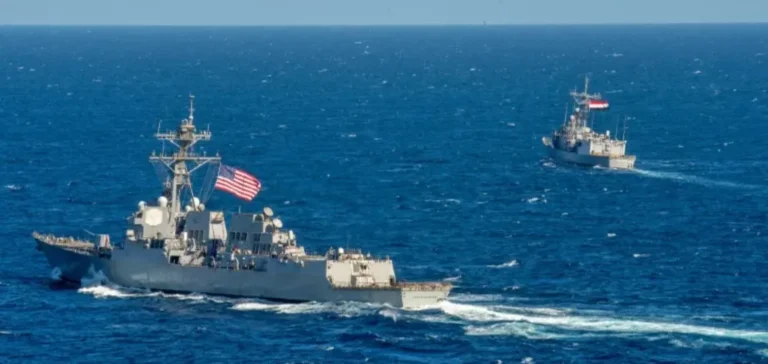The Venezuelan government described on Friday as an “undeclared war” the naval operation currently conducted by the United States in the eastern Caribbean. Officially presented as a counter-narcotics mission, this American military initiative has led to the destruction of three boats allegedly involved in illicit activities, causing the deaths of 14 people.
Rising military tensions in the Caribbean Sea
Venezuelan Minister of Defence Vladimir Padrino López stated that these military actions amount to extrajudicial executions at sea, questioning the legitimacy of Washington’s use of force. In a televised address, he criticised the technological might of the United States, arguing it does not justify lethal force against small vessels. In response, Caracas launched a series of military exercises on La Orchila island, located about 65 kilometres off the Venezuelan coast.
This military build-up is the most significant response by President Nicolás Maduro since a United States naval fleet was deployed to the region a month ago. The American flotilla comprises seven ships, a nuclear-powered submarine, and F-35 fighter jets sent to Puerto Rico.
Drug-trafficking allegations and energy stakes
United States President Donald Trump said the operation aimed to dismantle narcotics networks allegedly linked by Washington to the Venezuelan president’s circle. A $50 million reward has been offered by the American authorities for Mr Maduro’s capture.
Facing this pressure, the Venezuelan president announced the deployment of troops to several working-class neighbourhoods to train residents in weapons handling. In his public statements, he said the United States seeks regime change to gain control of the country’s natural resources, which include the world’s largest proven oil reserves and the fourth-largest gas reserves.
Regional impacts and security outlook
The deployment of American military forces in the Caribbean has not been formally recognised as a combat operation, but its operational scope and the lethality of actions taken have raised questions among several Latin American governments.
Venezuela’s exercises, involving naval and air units, signal a clear intent to assert national sovereignty over the Caribbean maritime area. No incidents between the two forces have been reported to date, but the proximity of military assets increases the risk of direct confrontation.






















